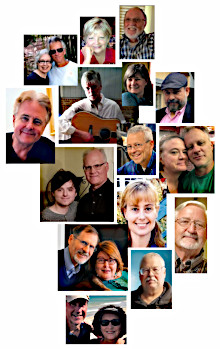Nebuchadnezzar has a dream that he can’t remember. He demands that his court magicians and seers tell him the dream and then interpret it. When they fail, he condemns them all to death. Daniel tells the king he can deliver both if he will grant him a day. After he and his companions pray, God reveals the dream to Daniel in a night vision.
Welcome!

Our Meeting Schedule
Our church community gathers throughout the week at different places on The Block, a neighborhood between downtown and the Lakewood area of Dallas, Texas, near the corner of Beacon and Columbia Ave. We'd love to have you join us!
Music!
We've posted a bundle of links to the songs of John Rutledge - including the Psalms of Ascent and the Hallel. Click on a song and sing along.
Audio Archives
 If you can’t make it to The Block, you can listen to podcasts from the archive by our late elder, Ole Anthony, recorded at his daily Morning Bible Studies, available here.
If you can’t make it to The Block, you can listen to podcasts from the archive by our late elder, Ole Anthony, recorded at his daily Morning Bible Studies, available here. Sundays
Note: There are no Sunday Morning meetingsPotluck Meal: We gather together for a potluck meal at 4 p.m. Sunday at The Lair, our community restaurant, located at 5644 Columbia Ave., downstairs.
'Big Group': Then we all gather from 5 - 6 p.m. Sunday for worship, singing and Bible study at the home of John and Joysanna Rutledge next door at 5640 Columbia Ave., upstairs. Contact John Rutledge jhnrutledge@gmail.com or call (214) 385-0230.
Spanish-language Bible Study
There is a Spanish-language Bible Study led by Pete Evans, Sundays at 8 p.m. Contact Pete at pete@trinityfi.org or call (214) 738-3349.Tuesdays
We usually have a pot-luck meal at 5:30 p.m. in the Lair (5644 Columbia Ave.) followed by Bible study at 7 p.m. Tuesdays at Gary and Judy Buckner's home at 5632 Columbia Ave. Contact Gary Buckner, buckner.construction@gmail.com or call (214) 682-8007.Fridays
At 7 p.m. Fridays, Bible Study taught by Pete Evans at 5640 Columbia Ave., downstairs. Contact Pete Evans, pete@trinityfi.org or call (214) 738-3349E-mail us: blockoncolumbia@gmail.com
-
Recent Posts
Recent Comments
- Scott Work on Newsletter
- Scott S. Work on Newsletter
- admin on June 27, 2021 – The Fast of Tammuz
- Robert Sussland on June 27, 2021 – The Fast of Tammuz
- Sarah Young on Obituary: Ole Anthony, our pastor and longtime nemesis of televangelists, dead at 82
Archives
Categories
Meta
